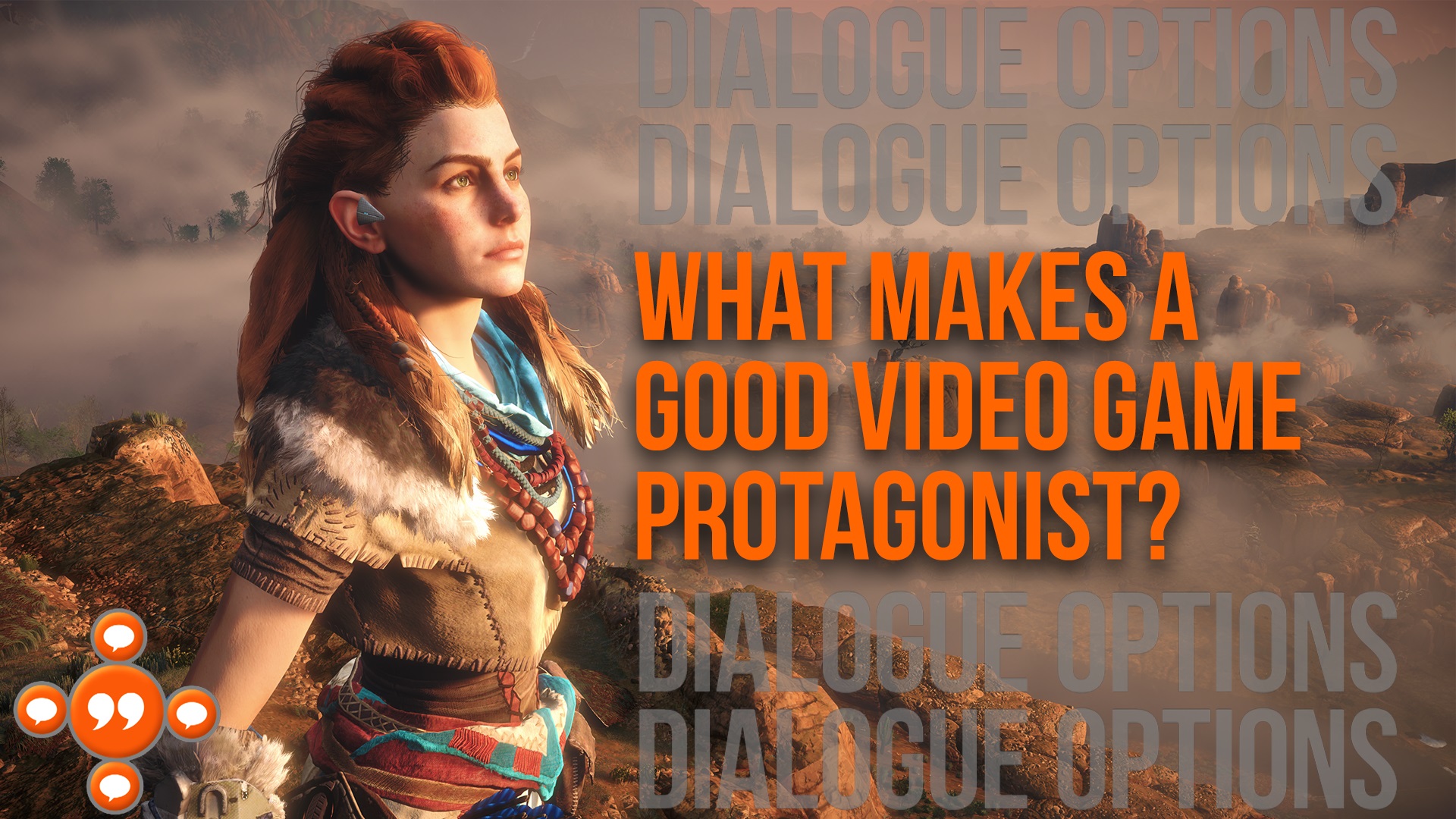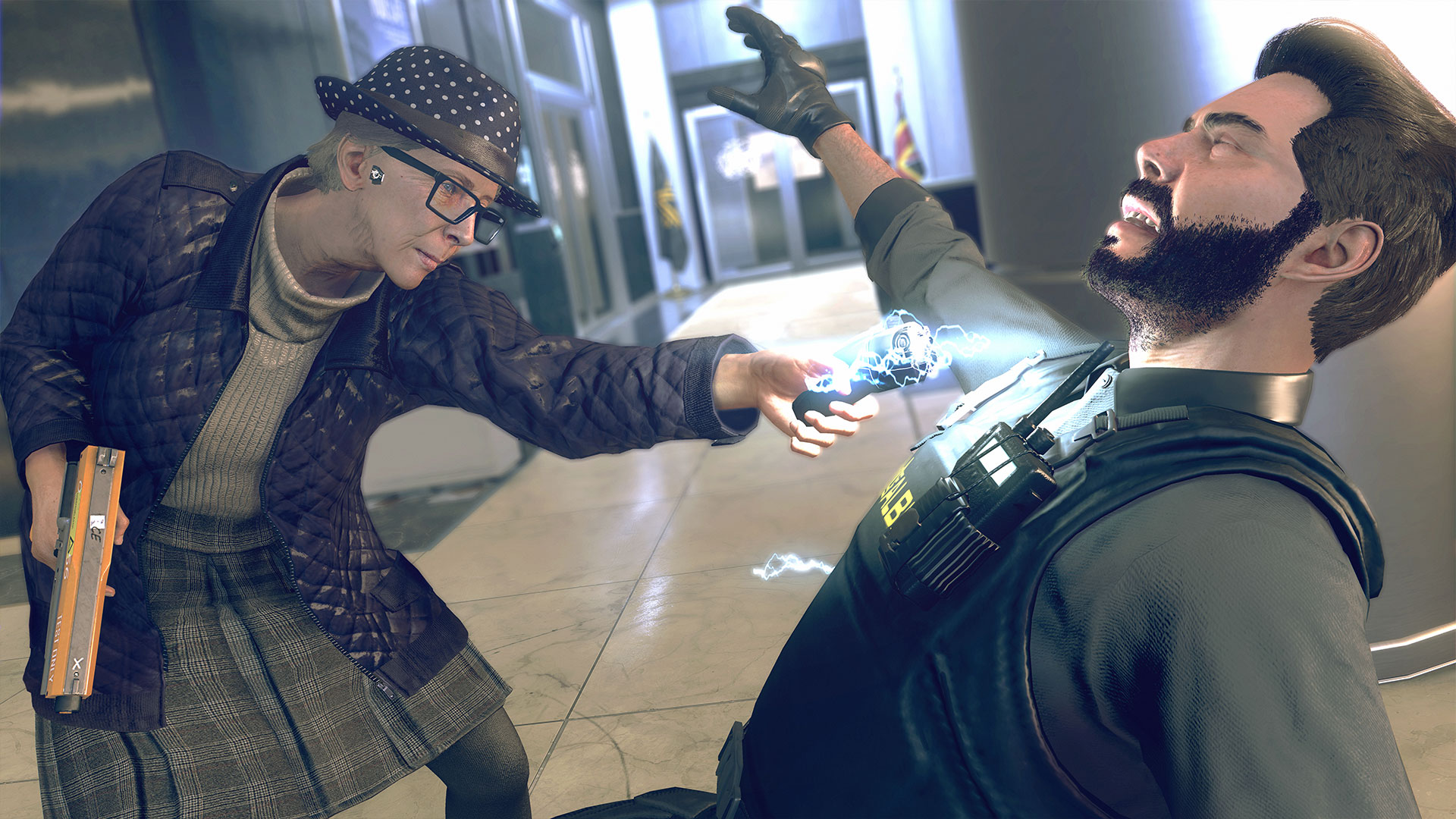Dialogue Options: What makes a good video game protagonist?
Games offer a variety of ways to play, but can a protagonist that you don't like turn you off from a game you would have enjoyed otherwise?

Hello and welcome to Dialogue Options, our weekly show where we take our gaming theories and opinions and we put them to you. This week I'm going to be talking about gaming protagonists, what we look for in the perfect character and whether we need to like them, to enjoy a game. So, let's chat.
When it comes to single-player games, there will always be lead characters that you aren't too keen on. Perhaps it's their personality, their motivations, or maybe even the voice acting that grinds your gears. Given that games can expect you to spend upwards of 30 hours in the company of a character, not liking a protagonist can have a pretty big impact on your ability to enjoy the title in question. Perhaps that will change soon thanks to games like Watch Dogs Legion, which will let you take control of any of the NPCs (or PCs, I guess) found out in the open world. All of this has made me wonder... Is it better to have a solid protagonist whether you like them or not, or will the ability to swap and change at will be the new way forward in gaming?
In the name of research – and riling up my co-workers – I asked members of the GamesRadar team if there were any characters they disliked and they did not hold back. Some were obvious picks, like the overtly antagonising Trevor Phillips and Michael De Santa from GTA 5. Others were a little more surprising, such as Cole Phelps from L.A. Noire, Lara Croft from Shadow of the Tomb Raider, and Alexios from Assassin's Creed Odyssey.
It's one thing to dislike a playable character when you have others to alternate between – whenever a mission in GTA 5 could be started by any of the three available characters I never picked Trevor – but being stuck with a single character that you don't like for an extended period of time can be a problem. After comments that Spyro the Dragon was too arrogant, a conscious effort was made by Insomniac to bring the flying dragon back down to earth; people are still angry about Raiden's role in Metal Gear Solid 2, 18-years on from his introduction. Then again, I suppose a little disdain makes a whole lot of sense.
A window into worlds
Main characters are our way into interactive worlds, and some make the journey feel more like an overcrowded bus ride rather than a first class ticket. Naturally some games rely more on their titular characters than others. Games like Red Dead Redemption, Red Dead Redemption 2, and Horizon Zero Dawn, for example, would be nothing without their Marstons, Morgans and Aloys. But would we still feel the same affinity for particular games without a solid main character with all the emotions, motivations, and pithy comments that come with them?
I personally find it hard to fully commit to games like Monster Hunter World, games that stick you in the body of a hollow main character – particularly those that are deceptive in their offering of character customisation. You can spend hours making aesthetic decisions for your character in Far Cry 5, for example, but your personality begins and ends at the haircut you choose. It's particularly frustrating when developers are so heavy handed in how they go about avoiding the fact that you're a nameless, voiceless vehicle to drive the game's action forward – especially when one-size-fits-all nicknames like 'dude' and 'pal' and 'player' are thrown around liberally. Don't even get me started on games that make the 'not much of a talker' gag as a sloppy quick fix to any issues you might have about not being able to respond in any given situation.
Perhaps the lack of a single main character in the upcoming Watch Dogs Legion could be the thing that finally frees you from the weight that a cumbersome, unlikeable protagonist puts upon you. Don't like the character you're playing as? No problem, just wander the streets until you find another. It's like the Tinder of the gaming world. How much you'll get to find out about each of these characters, aside from their daily schedules and what they bring to the table in terms of combat, remains to be seen. It could end up being mainly aesthetic, like Prototype, but it seems unlikely.
Weekly digests, tales from the communities you love, and more
An inexact science

I understand that a mute protagonist can and does have its merits in certain situations. By playing as a character without a strong, defined personality you have more of a chance to see the character as an extension of yourself. And while I personally find that to be jarring in most instances, in games with strongly defined main characters, you are still able to act against those characteristics, which can be just as bad. Creating a likeable protagonist is an inexact science for that exact reason – we are always bringing a little of ourselves to an otherwise defined role. I'm curious to know, though, when playing as a clearly defined main character, do you find yourself making decisions that you feel would be conducive to their character? Or do you do whatever the hell you feel like?
It surely comes down to where you personally find merit in a game. Do you play to fully immerse yourself in the lives of the main characters or do you prefer to visualise yourself in a world? Do you like to draw similarities between yourself and your pixelated persona, or does embodying an aggressive, shoots-everything-that-moves character provide you with a welcome escape?
Let us know what you think in the comments below.
Ellen Causey is the former Video Producer of GamesRadar+. She was chiefly responsible for recording voice overs and presenting videos for you lovely lot on a daily basis across GR's YouTube and Twitch channels. Ellen can now be found directing, editing, scripting, and producing video content for the wider games industry, and is currently creating fresh and original work for the fine folks over at Logitech G.


